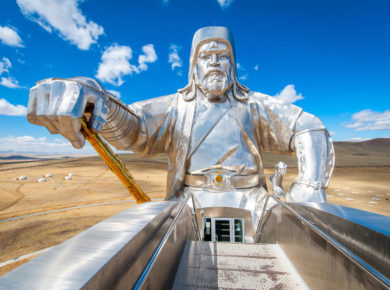Russian Bitcoin (BTC) miners could be in for a massive, unexpected environmentally friendly windfall if a pilot leads the nation’s energy giants to embrace crypto mining en masse.
Further details have been unveiled about a plant operated by the oil arm of Gazprom, Gazprom Neft, which late last year invited miners to set up shop at an oilfield in the Khanty-Mansi region. The miners have been at work with a month-long Bitcoin mining effort.
Pumping oil from fields like these produces associate gas – not the intended target of the oil extraction.
Typically, such gas is flared – essentially just burned up – releasing pollutants into the atmosphere. But associated gas can also be converted on-site into electrical energy. And given the fact that the Khanty-Mansi region is located conveniently (from a mining perspective) in Western Siberia, famous for its icy winters, cooling costs are also low in the region.
The pilot, per Ugra-News, is seeing Gazprom Neft provide enough power to allow a setup of 150 Antminer ASIC S9 devices to mine a haul of BTC 1.8 (USD 64,000) in the space of a month, using power provided by 49,500 cubic meters of associate gas. The Gazprom subsidiary carried out the energy conversion process.
The media outlet says that “preliminary estimates” from 2020 show that in 2020 about 34 billion cubic meters of associated gas were produced in the region last year.
The miners at the oilfield paid “less than USD 0.04” per kW of energy. Businesses typically pay at least double that amount for electricity on average elsewhere in the country, according to Global Petrol Prices data.
But the ramifications of the pilot could be even bigger, as the pilot is in its early stages and there are at least nine such oilfields in the region. The media outlet quotes Natalya Komarova, the long-serving Governor of the Khanty-Mansiysk Autonomous Okrug, and a former MP, as stating,
“Crypto mining is one of the ways to monetize cheap electricity where there is a surplus, or where the cost of electricity production is higher than market prices. In this case, it is economically more expedient to monetize bitcoin and exchange it for material goods in exchange. This is a competitive way to monetize the electricity generated.”
___
Learn more:
Bitcoin Mining in 2021: Growth, Consolidation, Renewables, and Regulation
This Is How Institutional Players Help Bitcoin Mining Industry Grow
Bitcoin Miners Are Using New Strategies to Hedge Risks
Billionaire Turns to Bitcoin Mining To Help His Troubled Business
Power-starved Abkhazians Face Internet Restrictions in Crypto Mining Crisis
Polish Crypto Miner Prepares Its Services For South Korean Gamers
Venezuelan Army Engineers Start Mining Bitcoin
Henry Ford’s Energy Standard: A 100-Year Old Bitcoin Prediction











